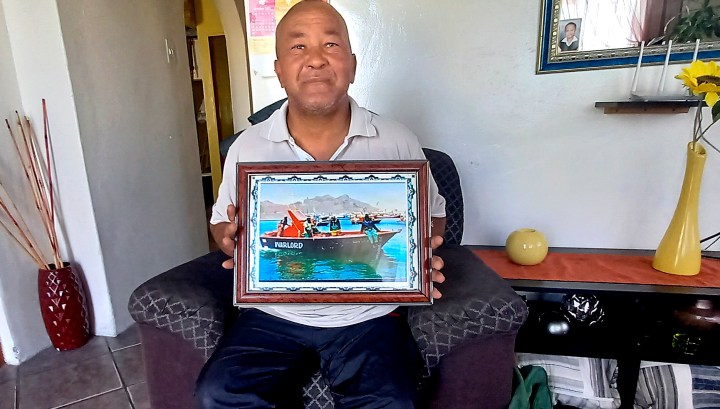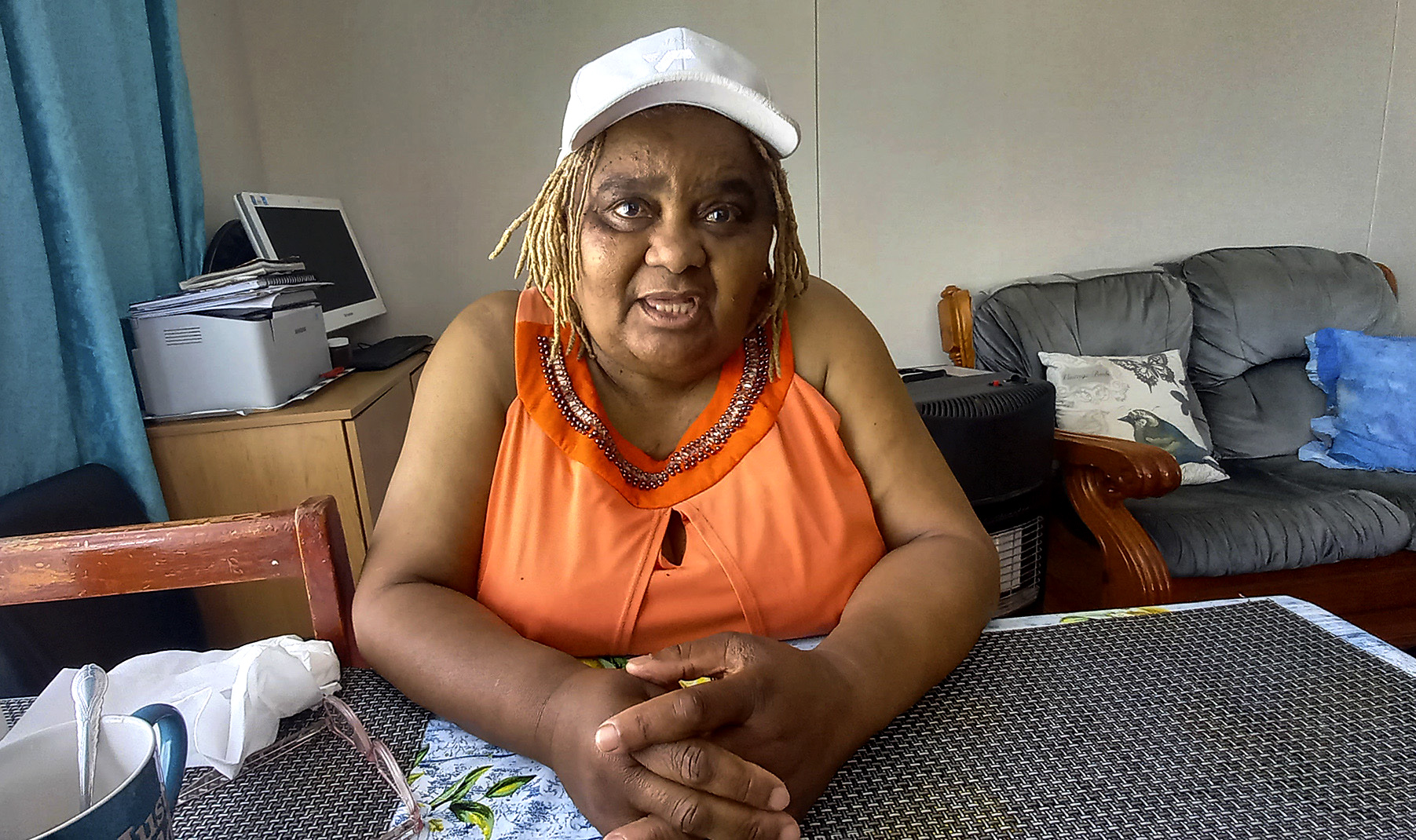FISHING QUOTAS
White City, Saldanha Bay: A community devastated by quotas and rising costs

The sea was once the main supplier of food and employment for residents in White City and surrounding areas in Saldanha Bay. But today boats stand idle in White City and fishermen battle to feed their families.
Paulina Mali (69) was born in Saldanha Bay and grew up in a fishing environment. Her father, Ben, who died 40 years ago, caught rock crayfish and made sure the family always had food. They never went to bed hungry.
Those were the good days, Mali said, adding that then the crayfish caught were all larger than 30cm — not the small ones divers find nowadays along the coast of Saldanha Bay.
“Snoek, lobsters [crayfish], sardines and mussels were in great abundance. Life was good and I remember as a child how I used to play with octopus in the shallow waters.
“My late dad and other fishermen knew exactly when was a good time to go to sea. They never went to sea when it was full moon. The fish shine during the full moon and my dad and the other fishermen waited for the dark moon.”
That was when the sea was the main supplier of food and employment for residents in White City and surrounding areas in Saldanha Bay.
Today boats stand idle in White City and fishermen battle to feed their families.

Emile Fredericks (left) and Nolan Pietersen, both from White City in Saldanha on the West Coast near Cape Town, say poaching has become a way of survival. (Photo: Vincent Cruywagen)
It all started going wrong, fishermen tell Maverick Citizen, when the Department of Forestry, Fisheries and Environment (formerly the Department of Agriculture, Forestry and Fisheries, or DAFF) introduced policies regulating the fishing and crayfish total allowable catch.
“Some of our people got quotas, but some prominent people with no knowledge of the fishing industry, from Gauteng, KwaZulu-Natal and Namaqualand also got quotas to catch lobsters and fish in Saldanha. Along with the rich and big fishing companies they were allowed to remove tons of lobsters and fish from our baai [bay].
“As children we watched our parents catch fish in the baai, but today it is an empty shell. Big boats from companies and those who got the best quotas left the baai in a depleted state,” Mali said.
With the demise of the fishing industry and companies moving to St Helena Bay, Saldanha was fast becoming a ghost town. Then industrialisation brought a reprieve in the form of Saldanha Steel.
People who lived in the area received a new lease on life. Those who didn’t work, Mali said, were lazy as there were enough jobs.
The second disaster hit the community when Saldanha Steel closed down in 2020, resulting in an estimated 900 job losses.
Those who bought properties and cars while working at Saldanha Steel were forced to sell them. During a visit to White City this week, unemployed fishermen and those retrenched because of the Saldanha Steel closure were seen aimlessly walking the streets.

Community LeaderPaulina Mali said the once-rich fishing town of Saldanha is now an impoverished community. (Photo: Vincent Cruywagen)
At several houses in White City, we were asked for R10 for food by people old enough to be our parents.
Nolan Petersen (42) grew up watching his dad catch fish.
Every night he waited for his dad to return from the sea and he ran down to the street to greet him and carry the fish he had caught. Making a living from the sea is the only form of work that Petersen knows. He has been unemployed for months.
“To go to sea I first need to get R500 for petrol, pay the guy with the bakkie towing my boat to the jetty and then apply for a permit at the post office. The permit costs R94 and this recreational fishing permit is valid for the entire season.
“This permit allows me to catch four lobsters or 10 hottentots fish. We are usually four guys on a boat… we are allowed to bring back 16 lobsters.”
At the end of the day, Petersen explains, if he sells his four lobsters at R30 each he doesn’t have enough money to buy bread, jam, milk and electricity. “How are we supposed to survive?” he asks.
Emile Fredericks, a small-scale fisherman, lost his job at a company that closed three months ago in Saldanha Bay. He is one of the fishermen who say they will not be stopped by the policies regulating the trade.
“If the law enforcement officers or Department of Fisheries officials catch me with more than four lobsters or 10 fish in my possession, I will go to court and tell the magistrate I’m doing this to feed my wife and three children. We have no option but to poach.”
Rashied Slarmie (52) inherited a boat from his late father eight years ago. The Slarmie family were once very successful fishers, but today the son cannot feed his family.
“I sold the boat. I didn’t have money to purchase a bakkie to pull the boat to the waters. I’m part of the small-scale fishermen and every year DAFF cuts our allocation. Last year it was 70kg and this year 58kg.
“With Christmas around the corner, we are still waiting on our permits for the 58kg. Our fishing season opens on 15 November.”
The best lobsters, he said, are found in Elands Bay and Lamberts Bay, “but the government says we are not allowed to catch lobsters in those waters.” They are confined to the waters in Saldanha Bay.
“In Saldanha, we don’t have lobsters… but if we go to Elandsbaai we will be arrested.”
Mali and other residents said the poverty and unemployment issues have nothing to do with the Saldanha municipality or any candidate contesting the upcoming local elections on Monday.
Mali said: “Decisions made by a national government has resulted in White City getting poorer. A lot of fishing communities supported the ruling party for years, but I’m afraid to say that number is dwindling very fast.” DM/MC



















 Become an Insider
Become an Insider
Comments - Please login in order to comment.